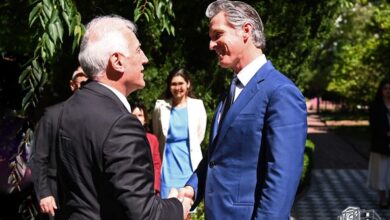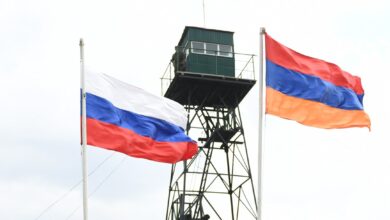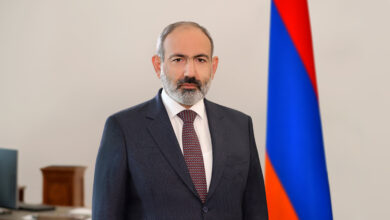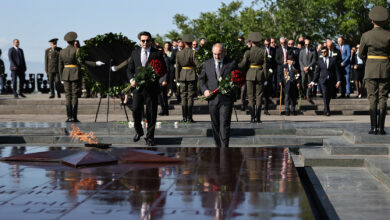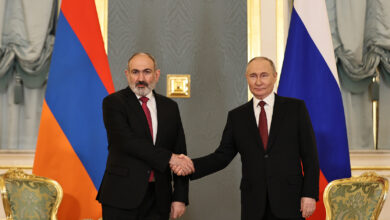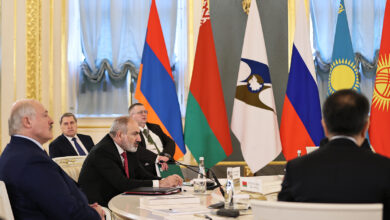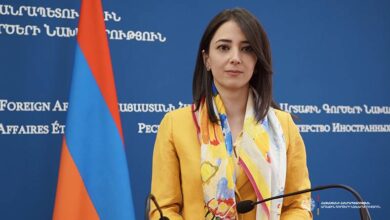Three months in, new Fresno Armenian honorary consul Berj Apkarian shares vision, progress
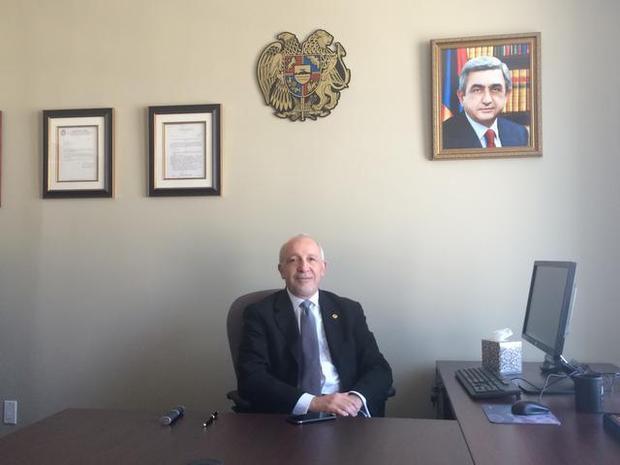
Berj Apkarian made history last October, becoming the country’s first Honorary Consul of the Republic of Armenia.
Apkarian, executive director of physician relations at Community Medical Centers, immigrated to Fresno from Syria in 1979.
He wasted no time deciding what he’d do as consul. For his first big project, Apkarian said he wants to take a team of 15-20 medical and dental professionals to Yerevan, the capital of Armenia in October to host a medical education conference and provide free care for needy people in surrounding rural communities.
The Fresno Bee caught up with Apkarian to see how things are going three months into his appointment. Answers have been edited slightly for clarity and brevity.
Q. What have you been working on the past three months?
A. Opening the office has been very positive for the community and for the region. In fact, since the inauguration Oct. 20, we have had several organized events, including inviting the president of Nagorno Karabakh to the Valley for the first time.
We started providing consular services to citizens of the Republic of Armenia so individuals don’t need to travel to L.A. to apply for citizenship, passport renewals and other documents.
On Nov. 2, I attended the groundbreaking of the Armenian Genocide Monument on the Fresno State campus. On Nov. 13, we hosted the Khachaturian Trio before their performance at Fresno State. In the past, Armenian cultural events and meetings have taken place without having a home that represents the homeland. So this office is key in terms of fostering that relationship.
Nov. 19-21 I participated in a training through the Consular Corps College in Washington D.C. On Thanksgiving day I participated in the 17th International Armenia Fund Telethon in Los Angeles (proceeds will help construction of the Vardenis to Martakert Highway). On Jan. 9, we did a New Year’s open house to share what we’re doing and where we are with our vision.
Q. What is the consulate’s vision?
A. Bringing the community together in support and solidarity of the homeland and encourage commerce, culture and enhance the relationship between the Central Valley and the republic. This is one of the oldest Armenian communities in the United States. One of my goals is to also encourage the younger generation to take part in these activities.
The other thing we’re working on is trying to create a stronger relationship between the consulate and local government. I have reached out to the mayor.
In all our events, both consuls, the Mexican consul and honorary consul of Italy, have taken part. We meet regularly as the three foreign diplomatic offices in the central San Joaquin Valley.
Q. What can people expect from the consulate this year?
A. I’m working to bring KOHAR, a very famous symphony orchestra and choir group from Armenia, at the end of May.
If you look at it from a big-picture standpoint, consular work is applications and documents — that’s one endeavor. But this being the centennial of the genocide, I’m also the chair of the monument project, so making sure this project is completed is an absolute priority for me.
The planning process has already started for the first Medical Mission and Symposium, scheduled for Oct. 1-12. We’re going to do it annually, in phases where we can meet the need over there as determined by the minister of health.
Q. Has anything about your new role surprised you?
A. No, actually it has been very gratifying. Yes, it takes time away from my family. However I think as you see the results, you see smiles on peoples’ faces as they say, “Thank you for processing the consular work so I don’t have to drive 200 miles,’ or when you see support from the community in raising funds, for example, for the monument project, that is absolutely the best that could happen to an individual who wants to serve. The time and the effort is just well worth it. I see that pride with every individual I interact with. This honor belongs to them.
Q. This year marks the 100th anniversary of the start of the genocide, which killed as many as 1.5 million Armenians in the declining Ottoman Empire from 1915-1923. What is the consulate’s role in commemorating the anniversary?
A. I think the presence of the consulate and the honorary consul becomes a rock and a foundation people can lean on, and a point of support for various endeavors that the community either seeks and/or plans to accomplish.
I feel privileged to witness this time of history. The generation before me gave their lives to keep our heritage, our language and to keep the torch alive so that we never forget that such atrocities took place. For me, it’s very important that we get a worldwide recognition. In particular current Turkish denial continues despite all the facts that speak very loud and clear.
The centennial, for me, it’s time for renewal of our commitment, not to forget, but stand in solidarity with our homeland. A stronger Armenia becomes a testimony that whatever was perpetrated did not succeed. Here we are after 100 years, we have an independent homeland and we have prosperous Armenian communities throughout the world.


